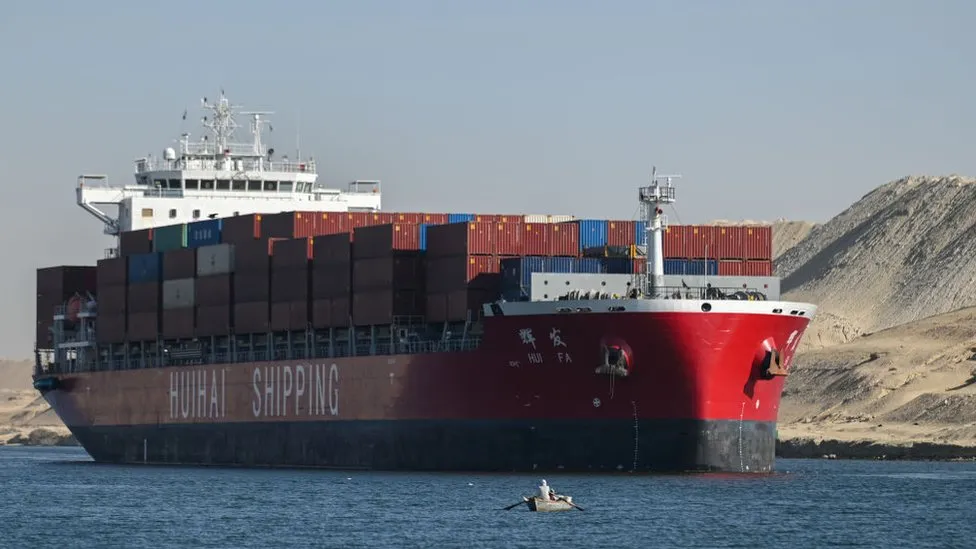Red Sea Attacks Cause Goods Delay and Cost Escalation
British businesses are grappling with increased shipping costs and delays of up to four weeks due to Houthi attacks in the Red Sea, according to a survey by the British Chambers of Commerce (BCC). Over a third of the surveyed firms were reported to be affected, rising to more than half among exporters. The disruptions are causing concerns about higher prices in the UK economy as businesses struggle with shortages of goods, components, and cash flow difficulties.
The BCC found that export-oriented businesses, retailers, wholesalers, and manufacturers were more likely to feel the impact of the shipping challenges. Rerouting shipments around the southern tip of Africa, the Cape of Good Hope, is adding three to four weeks to delivery times. Some companies have reported price increases of more than 300% for container hire.
The conflict in the Red Sea has impacted businesses since before Christmas, affecting budgeting and causing considerable increases in container costs. The BCC’s head of trade policy, William Bain, noted that while there has been some spare capacity in the shipping-freight industry to manage difficulties, the pressures are increasing, and costs cannot be absorbed indefinitely. He cautioned that the scale of price rises, while not as high as during the pandemic, cannot be kept away from prices for long.
One example provided is Warings Furniture, a business importing interior decor for pubs and restaurants. The company has had to budget for extra costs due to higher container quotes and is experiencing delays. Some companies are negotiating lower prices with manufacturers to counteract cost increases.
The BCC suggests that extra government support for exporters may be needed, including the formation of an exports council to promote trade. Given the drop in total goods exports in 2023 and weak global demand, there is a call for government support in the upcoming budget.
Shipping rates increased after Houthis attacked commercial vessels in the Red Sea, targeting ships linked to Israel, the US, and the UK in support of Hamas during the Israel-Hamas conflict in October. The US and the UK responded with air strikes on Houthi targets in Yemen. The Red Sea is a crucial sea route between Asia and Europe, and the rerouting of vessels is pushing up costs, causing delays, and impacting various industries.
Companies like Tetley and Yorkshire Tea have also expressed concerns about supply chain tightness due to the shipping disruptions. The BCC surveyed more than 1,000 firms, primarily small businesses, to understand the challenges posed by the shipping difficulties in the Red Sea. The situation highlights the broader impact of geopolitical events on global supply chains and the potential consequences for businesses and consumers alike.


